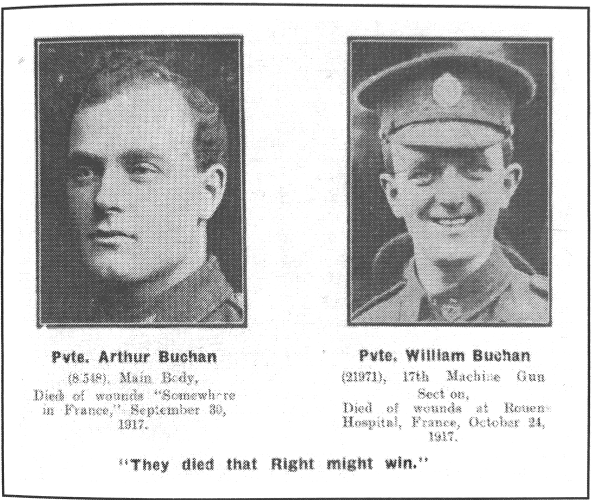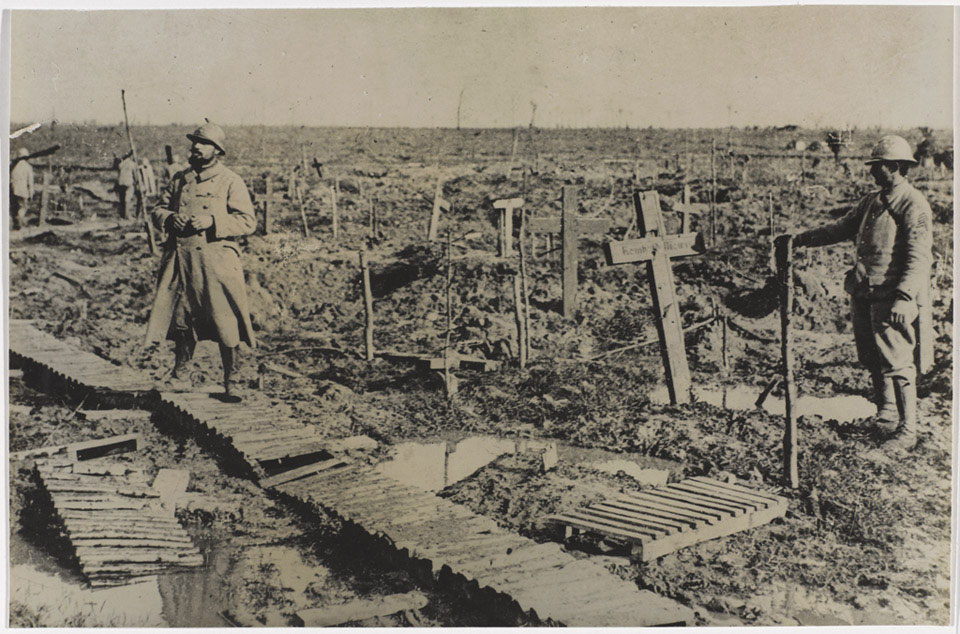
Dear Father,
I think I have a little good news to tell you, but of course do not rely too much on what I am going to say as you know in the Army things may be altered at the last moment. We have just received news here that the Main Body are being sent home, and will probably leave any day. I think the news is fairly reliable as the old hands have had their names taken and according to what I hear they are making arrangements in England for the transportation home… …if that is the case I will be well on the way by the time this reaches you, and will be able to spend a very enjoyable Xmas at home. (20.9.17)
This letter was written to John Buchan (1858-1926) from his son Arthur from the battlefields in Belgium. Sadly, he never got to spend that ‘enjoyable Xmas at home’ as a week later, Private Arthur Buchan of the ‘Main Body’ was gassed and received gunshot wounds to his head and arm. He died only ten days after writing that hopeful letter to his father.
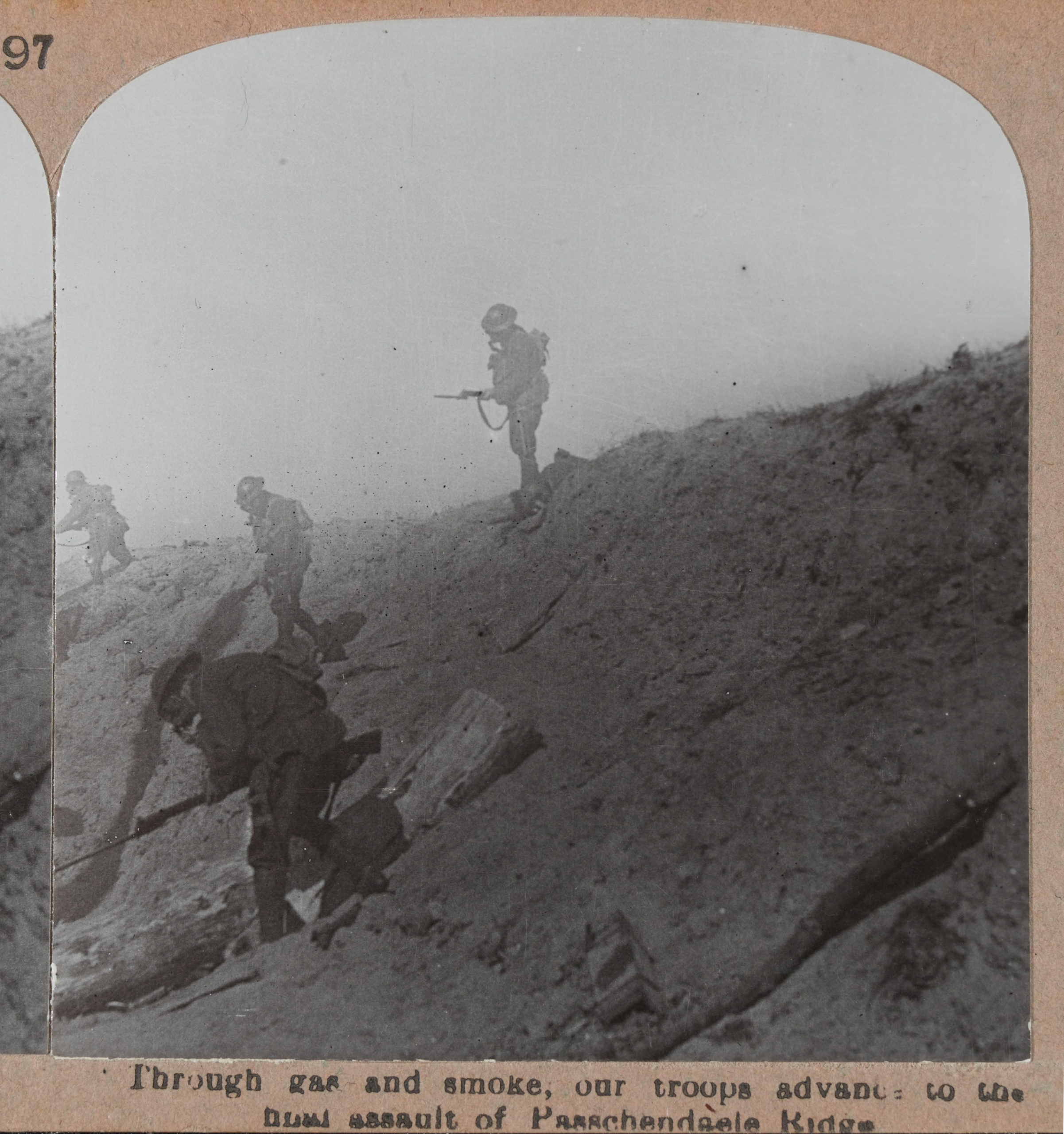
In 1893, Arthur was a 2 year old boy emigrating to New Zealand aboard the Rimutaka (seen in a previous post); the cousin of my great-grandfather, Charles Buchan (also aboard).
In 1917, Arthur was one of the 400 000 who died in the Battle of Passchendaele.
This year commemorates the centenary of this horrific event, also known as the ‘Third Battle of Ypres’.
A letter from a friend to Arthur’s cousin, Bill (my GGF Charles Buchan’s brother) gives more detail on the incident that led to his death:
We were in the old Hun front line at Ypres, in front of the village of St Jean & were to go into the advanced front line next evening. Early in the morning Fritz sent over gas shells & we had our masks on for 4 1/2 hours when we got word that it was clear. We were just settling down again to sleep when he sent a stray one over which landed clean on the duckboard in the corner of the bay. Arthur was lying in the transverse & it landed within a yard of his feet and in addition to gassing him wounded him in three places namely, temple, left wrist shattered & a bad smack in the right shoulder. He was very game &, bad as he was, insisted in walking out himself. He was carried out though and I can truthfully say was not in any pain. The gas is very poisonous & I think that is the cause of his death as another chap got only a small piece in the back and died the next day… A McLennan (24.10.17)
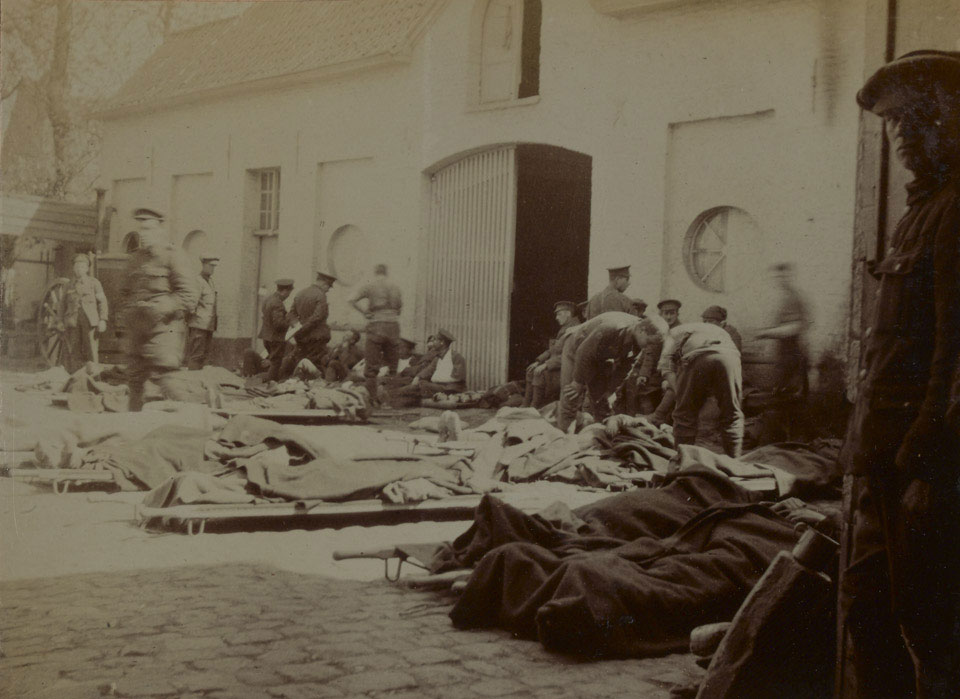
I have often told you he was a son and a brother to be proud of – a brave and fearless soldier who was ever ready to volunteer for any dangerous work. From time to time I have met men who had been in the trenches with him and their frank admiration of him as a soldier and acomrade has made me proud that I bear his name. His many friends at Walton ask me to convey to you their sincere sympathy – his loss is deeply regretted by everyone he knew in the village… the real grief I met with on every hand is the best testimony to the manner in which he had endeared himself to all…Billy
I have just seen the latest casualty list with Billie’s name on it. What can I say? May God be with you in your time of trouble and comfort you in your bereavement.
We had just made the attack on Passchendaele on the 12th October and were for a few days holding the line in front of the Village… We occupied a German pillbox as my [head quarters] and were in it when Fritz commenced a heavy gas shell bombardment. I was in the act of posting a Gas sentry when a shell burst in the doorway and filled the pillbox with gas. We all received a big dose before we could don our masks. We all took all known precautions against the gas, burning and fanning, and after having worn our masks for over an hour I took it upon myself the responsibility of ordering them off. The air smelled perfectly sweet and free from gas, but in about eight hours time most of us began to vomit and go blind. I sent all those affected out and followed shortly afterwards… Three others besides Corp. Cooney and Pte Buchan died as a result of this gassing and I feel sure their deaths in all cases were due to complications of pneumonia… I can only say that no one knew til afterwards that the gas destroyed the sense of smell and so prevented us from detecting its presence… (2nd Lieutenant David Williams (18.7.18)
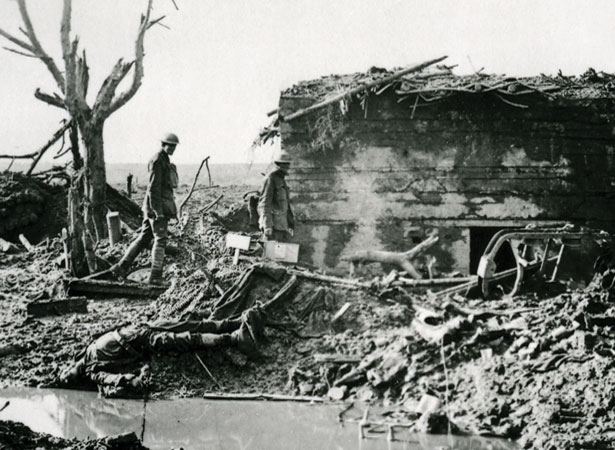
Perhaps it was merciful that their mother, Jessie had died before the onset of WWI in 1910.
Lest we forget.
The information and excerpts contained in this post were provided by Roy Buchan from his book ‘From Peterhead to Passchendaele’ (2003).

